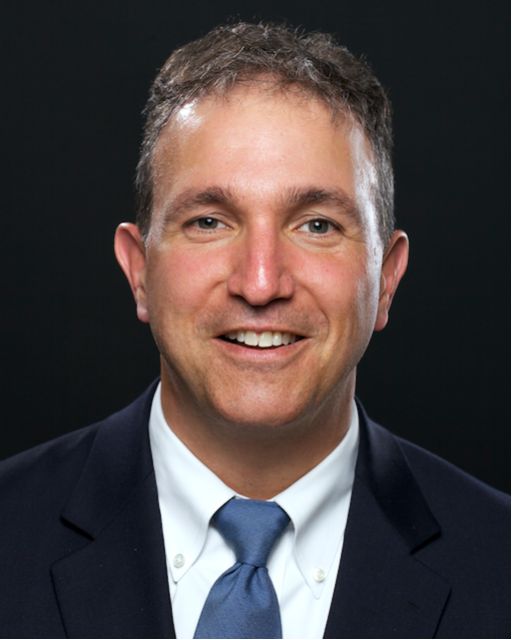
New Jersey’s Disability Ombudsman Paul Aronsohn oversees the Office of the Ombudsman for Individuals with Intellectual or Developmental Disabilities and Their Families. Its small, hardworking staff — Christine Bakterdoes is deputy director — helps individuals and families navigate the disability support system, advocates in areas including education and housing, and so far, Aronsohn tells the Boost proudly, has been able to respond to each and every constituent disability-related email or phone call.
Prior to this job, Aronsohn was a former mayor of Ridgewood, N.J., and worked on then governor-elect Phil Murphy’s transition team. He was recently reappointed to serve on the President’s Committee for People with Intellectual Disabilities.
RELATED NEWS: NJ makes strides but state still failing in care of people with disabilities, report says
Aronshon’s work is inspired by his developmentally disabled sister Patti, who passed away in 2017 at the age of 54. His brother, Robert, a photographer who passed away in 2022 at age 67, was diagnosed later in life with a rare, neurogenetic disease that required the use of a cane and mobility scooter.
Aronsohn talked to The Boost about the “extraordinary” people his office serves, why one-on-one visits in homes are critical, surveillance cameras, and more. Our conversation has been edited for length and clarity.
Congratulations on the office’s five-year anniversary. Do you feel like you’ve run a marathon?
[Laughs] It feels great. It’s just busier and busier. And the nature of the office and how it often deals with families in crisis, it’s traumatic for them and traumatic for us trying to work through their situations. They’re often just so beaten down, and we get it. It’s hard to be in the system, it’s confusing and often overwhelming. But it’s wonderful to be in a position to help. It’s a whole mix of emotions.Do you know how many other states have a disability ombudsperson? I know New York doesn’t have one for developmental disabilities.
I don’t think many states do. From what we can tell, our mandate might be the broadest.
Can you talk about your own family, and what makes this position so personally meaningful for you?
One of my older sisters, Patti, had developmental disabilities. She was never effectively diagnosed, but as a child, she had learning disabilities and cognitive and behavioral issues. She was physically a dynamo, very athletic, but in her 20s her disabilities began to express themselves physically and she had to use a cane then crutches then a walker. She eventually ended up quadriplegic with a feeding tube and lost her ability to speak.
She still had some choice words for her younger brother, though! “Goofball” was one, she never lost that.
When Patti lost her independence as an adult, she moved in with my mom and my mom became her caregiver. They were very close.
That’s so much to go through.
You know, my mom died on June 20, 2017, sort of unexpectedly. She’d taken ill a month before. Three days later, Patti died. It was shocking, heartbreaking. But it was also beautiful and somewhat poetic that these people who traveled together through life traveled together, so to speak, after. It speaks to the bond between parent and child.
You’ve taken on a lot, both personally and at work. What’s been the most unexpectedly difficult part of your job?
In our report last year, I tackled an issue I’ve grappled with for years — the disconnect between those who make decisions and those impacted by those decisions. I’ve got to believe most people who go into government do so for the right reasons. They want to help people, to serve people. But often they seem to lose their way and become disconnected from their mission, from the people they’re supposed to serve. Look at [New Jersey’s] decision to outsource managed care [to for-profit companies] and give private businesses ultimate responsibility for coverage decisions.
There are four of us in the office, three of us have a personal connection to disabilities. And so we’re often flailing our arms saying, “How can they say no” [to what’s needed], but unlike us, they don’t work up close and personal with people.
We’ve made a point since the beginning to do a lot of one-on-ones in people’s homes. Yesterday I was in three homes meeting with people in their living rooms, meeting family members, seeing the hole in the wall created by a person in crisis. Now we also do video phone calls.
People have a direct line to us, and then we try to work with our colleagues who don’t have that [experience]. Sometimes we beg them to go into a person’s home and see what’s going on.
The thing most eye-opening for me in terms of policy is [how we deal with] autism with severe challenging behavior, what some call severe autism. Coming into this job, I was struck — and still am —by its prevalence, as well as the lack of supports and services.
How many calls does the office field a day?
We’re fielding them all day, emails too. And I give out my personal number so I get texts on the weekend! There’s a lot of incoming and we always get frustrated when we miss even one.
Can you give me an idea of the nature of some of the calls?
Well, [last] weekend, a family contacted us because their adult child with medical complexity is in the hospital with pneumonia and they [were worried that the] hospital staff wasn’t paying enough attention to the individual’s needs, and that a direct support professional couldn’t visit. We immediately reached out to the head of the [state] Division of Developmental Disabilities and the commissioner at the Department of Health to help the family navigate the system there and get them what they needed.
Our first call Monday morning was from a family I’ve been working with, a woman whose son [under 21] is in a group home. She had gone to visit him and found bruises over his body. She was very upset and I talked with her at length. This has been an ongoing problem for the family. We reached out to the head of [the state’s] Children’s System of Care to make sure they’re aware of the situation and to find out what was being done.
And that was just the first call…
We also got a nice email! We’d been working with a parent of a young man with severe challenging behavior, including self-injurious behaviors. They needed intensive in-home supports that just aren’t available and we helped them find out-of-home placement, first temporarily in New Jersey. It’s an excruciating decision for families to do this. He’s now in an out-of-state placement, a residential school, entering his fourth month and she wrote that he’s doing quite well, making good progress. It’s great to get that kind of note.
That’s fantastic. So, in this year’s report, you write that the office’s “spirited” approach doesn’t always sit well with providers. That’s a very carefully chosen word! Can you elaborate?
[Laughs] I think it’s the nature of the office. You need tension, a healthy tension [between the office and colleagues and providers].This office is a place people come to when they have a problem. We not only help connect them with the resources they want, but we help them advocate. And there’s sometimes a difference in opinion with providers.
For instance, we get a lot of folks with abuse and neglect and staffing concerns related to the providers, and we’ll take up that cause not only in our day-to-day interactions with the Department of Human Services but with the providers themselves.
Staffing concerns of course point to the need to pay Direct Support Professionals [DSP] a fair wage. It’s a critical issue.
Most people don’t know how much [DSPs] make an hour, and you get what you pay for in life. For some of them, it’s a second job. For many, the wage is not enough. When you’re understaffed that’s when a lot of the abuse and neglect happens. If you have a group home with four people and even just one person has behavioral challenges it’s a lot to handle. Mistakes happen.
Where do you stand on camera surveillance in group homes?
We’re working with a group of families who want to make surveillance cameras more available. They’re allowed in state-licensed residencies, but not mandated.
I think they can serve multiple purposes: They can protect more incidents from happening; protect staff; and be used as an educational tool. You can go to video and see the antecedent and what led to a particular situation, and what could be done differently. Cameras don’t need to be punitive.
We have a very vulnerable population, particularly those who aren’t able to speak. But even if you can speak, it puts you in a precarious position to speak up against a staff member you depend on.
There are also privacy concerns.
Yes, there are privacy concerns. We need to strike a balance, to protect their privacy, but also their physical and emotional well-being.
I’ve spoken with families who think New York would greatly benefit from a developmental disability ombudsman. Any advice on how to get this rolling?
I do think it’s something that’s needed, though as with New Jersey, I think it should serve all disabilities.
It’s not a big-budget item and it’s not that hard to do. We can share the legislation that created the office. [You’ll find it here.] Families and individuals need a place they can go to get information, to get assistance. They need someone to listen to them on a personal level and help them find their voice and advocate.
Switching topics, congratulations on being appointed by President Biden to a second round on the Committee for People with Intellectual Disabilities. Have you met the president? And what are you working on?
[Laughs] No, everything’s been virtual and I haven’t met the president.Right now, we’re working on an annual report. I think it’s mandated, but there hasn’t been one since 2017!
One thing we’re focusing on is Home and Community-Based Services (HCBS). In that context, I’ve been leading the effort to look at family support programs primarily Medicaid, SS, programs that folks with disabilities rely on.
My focus has been on two angles. First, there’s the financial imperative, the need to update a lot of these programs both in terms of asset and income level so that they’re realistic in terms of today’s economy and needs.
And then there’s the moral imperative. Eliminating the marriage penalty is the most glaring example. An individual asset limit for SSI is $2,000, for a couple it’s $3,000, not even doubled. It serves as a disincentive and precludes them from getting married.
I can’t imagine you have time, but what do you do to relax?
One of the things my colleagues in the office and I talk about is how much we absorb. We absorb a lot. We should be more schooled in trauma-informed care for our families and for ourselves. We have to find a way to let it go and release it.
Many times, one of us will get off the phone and say, “I’m going outside for a walk.” Yesterday I had a mother cry to me, the day before a father. I deal with teenagers with self-harming behaviors. It’s hard. So yeah, we do a lot of walking.



